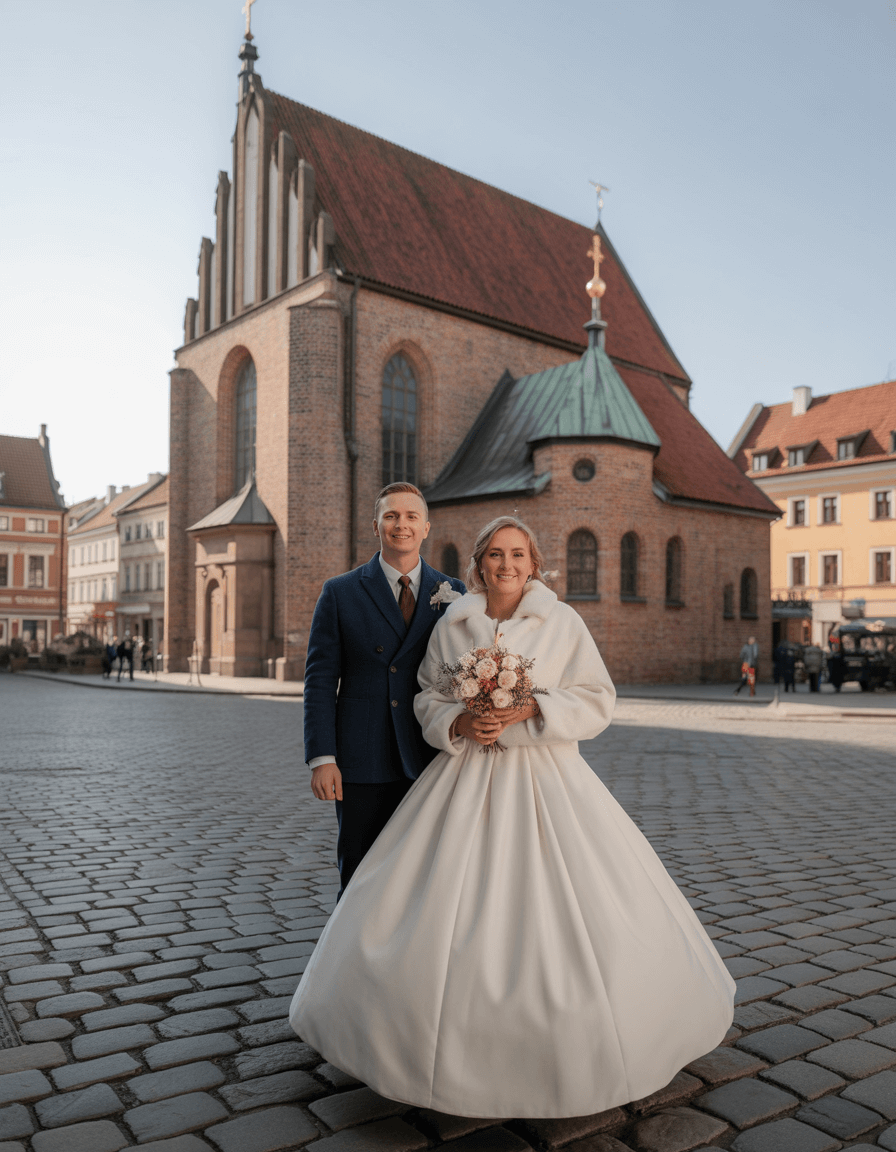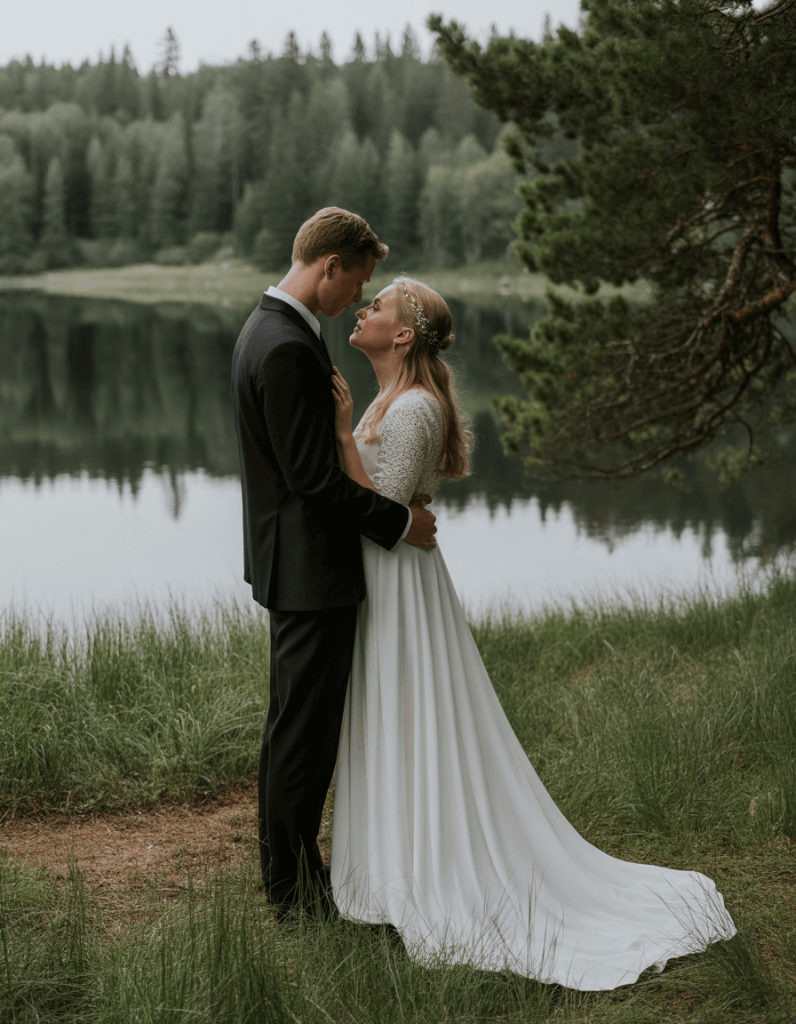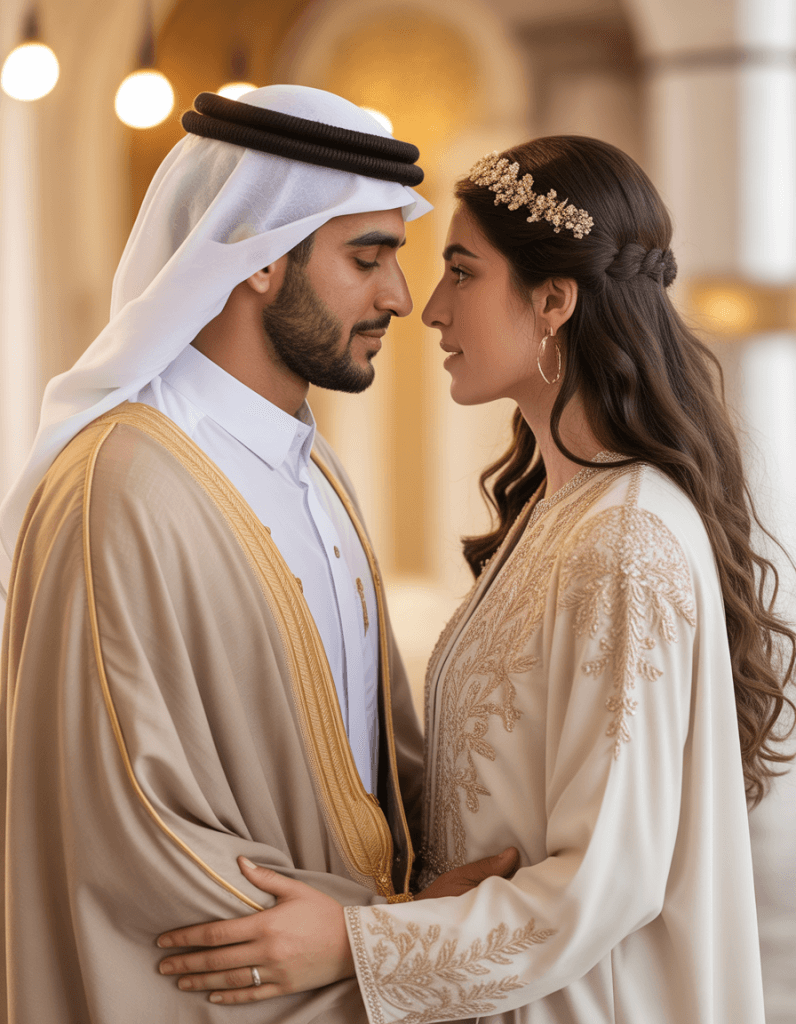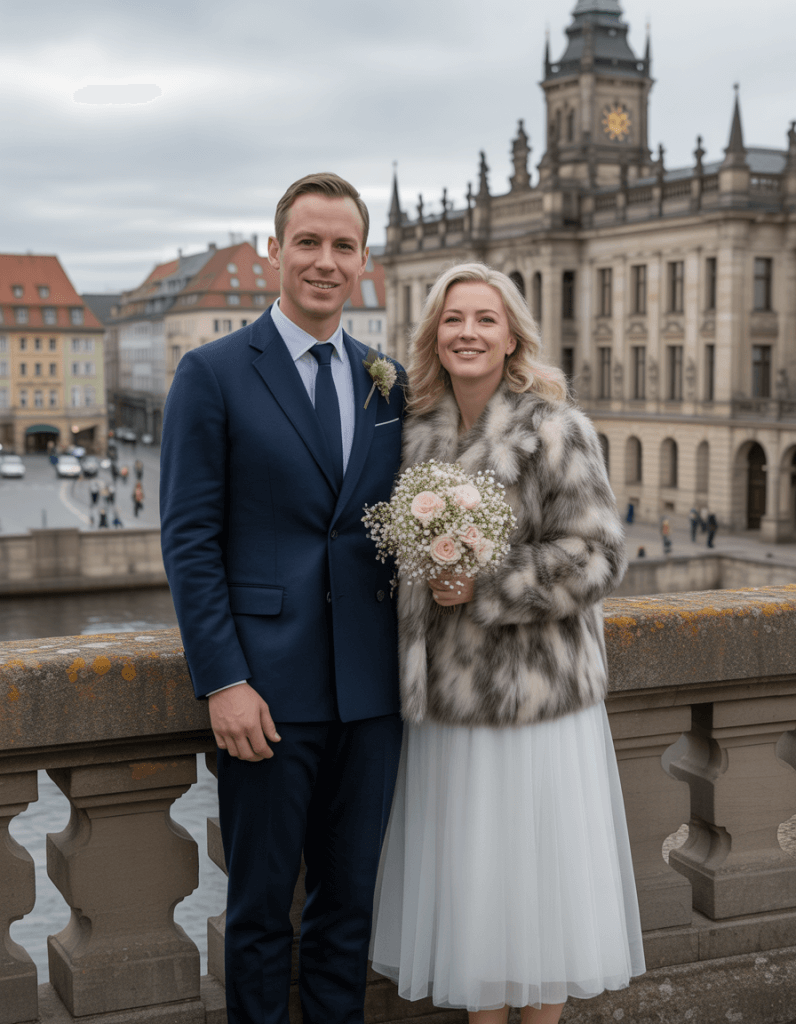За последние несколько десятилетий средний возраст вступления в брак в Польше неуклонно растет. Когда-то известная ранними браками и большими семьями, Польша сейчас следует общеевропейской тенденции, когда пары дольше ждут, прежде чем связать себя узами брака. Экономические факторы, изменение социальных ценностей и стремление к образованию сыграли свою роль в изменении структуры браков в Польше.
Согласно последним данным, польские мужчины и женщины откладывают брак как никогда раньше, предпочитая сначала обрести финансовую стабильность, прежде чем вступать в долгосрочные отношения.
Текущая статистика по среднему возрасту
В 2025 году средний возраст вступления в первый брак в Польше, по оценкам, составит около 30 лет для женщин и 32 года для мужчин. Это знаменует собой значительное увеличение по сравнению с тем, что было всего два десятилетия назад, когда многие пары вступали в брак в возрасте чуть более двадцати лет. Разрыв между мужчинами и женщинами остается относительно небольшим, что отражает схожие жизненные цели и сроки получения образования.
Исследователи отмечают, что эти цифры приближают Польшу к среднему возрасту вступления в первый брак по Европейскому Союзу, демонстрируя, как изменения образа жизни и современные взгляды на отношения проникли почти во все уголки польского общества.
Почему поляки откладывают свадьбу?
Одной из главных причин, по которой люди откладывают свой первый брак, является финансовая нестабильность. Стоимость жизни, цены на жилье и нестабильность работы заставляют многих молодых людей колебаться, вступать в брак или заводить семью слишком рано. Родители, хотя и по-прежнему влиятельны в польских семьях, все чаще поддерживают решения своих детей подождать, пока те не почувствуют себя готовыми и уверенными в себе.
Кроме того, и мужчины, и женщины отдают приоритет личностному росту, высшему образованию и развитию карьеры, прежде чем брать на себя обязательства на всю жизнь. Многие пары сейчас живут вместе годами, прежде чем решиться на брак, что отражает растущее культурное признание нетрадиционных моделей семьи.
Роль общества и культуры
Брак остается важным институтом в Польше, глубоко связанным с семьей и традициями. Однако, определение того, что значит быть женатым, эволюционировало. Современные польские пары склонны ценить эмоциональную совместимость и общие цели больше, чем общественное давление. В то время как свадьбы по-прежнему отмечаются с энтузиазмом и соблюдением богатых обычаев, среднее количество церемоний в год снизилось, поскольку люди предпочитают вступать в брак в более позднем возрасте.
В то же время, показатели разводов постепенно выросли, что говорит о том, что, хотя меньше людей вступают в брак в молодом возрасте, те, кто это делает, часто ожидают более сбалансированных и равноправных отношений. Этот культурный сдвиг отражает тенденции в Европе, где акцент на взаимном уважении и личном счастье часто перевешивает традиционные ожидания.
Влияние на семью и детей
Решение отложить брак также влияет на создание семьи. Многие поляки предпочитают заводить детей позже, что приводит к уменьшению размеров семей. Фактически, почти каждый четвертый ребенок в Польше сейчас рождается вне брака. И это число продолжает расти с каждым годом. Эта тенденция подчеркивает более гибкое понимание семейной жизни, где любовь и партнерство ценятся больше, чем официальные документы.
Тем не менее, для большинства поляков брак остается целью — просто целью, которая достигается после обретения независимости и стабильности. Желание растить детей в преданных отношениях остается сильным, даже если это происходит в более позднем возрасте.
Сравнение Польши с другими европейскими странами
По сравнению с другими странами Европы, средний возраст вступления в первый брак в Польше немного ниже, чем в таких странах, как Италия или Испания, где люди часто женятся ближе к середине тридцати лет. Однако он выше, чем в некоторых частях Восточной Европы, где ранние браки все еще распространены.
Эти различия показывают, как культурные, экономические и религиозные факторы влияют на решения людей о вступлении в брак. В Польше религия продолжает играть роль. Однако ее влияние со временем ослабло, поскольку молодое поколение перенимает более прогрессивный образ жизни.
Что ждет польские браки в будущем
Эксперты прогнозируют, что средний возраст вступления в брак в Польше будет продолжать незначительно расти в течение следующего десятилетия. Образование и карьерные амбиции растут, а социальное принятие не состоящих в браке пар укрепляется. Таким образом, брак будет все чаще становиться выбором, сделанным из-за подлинной готовности, а не обязательств.
Однако, несмотря на эти изменения, основная ценность семьи остается центральной в польской культуре. Хотя пары могут откладывать свадьбы, эмоциональная связь между партнерами и их стремление построить значимую жизнь вместе по-прежнему определяют суть современных отношений в Польше.
Заключение
История брака в Польше — это история трансформации: от ранних союзов, укоренившихся в традициях, до более поздних браков, формирующихся под влиянием независимости и самореализации. По мере того, как люди адаптируются к новым реалиям, институт брака остается устойчивым, даже несмотря на то, что его значение меняется.
Выходят ли поляки замуж/женятся в 25 или в 35 лет, они по-прежнему дорожат идеей любви, партнерства и семьи, доказывая, что, хотя средний возраст может меняться, ценность связи остается вне времени.













